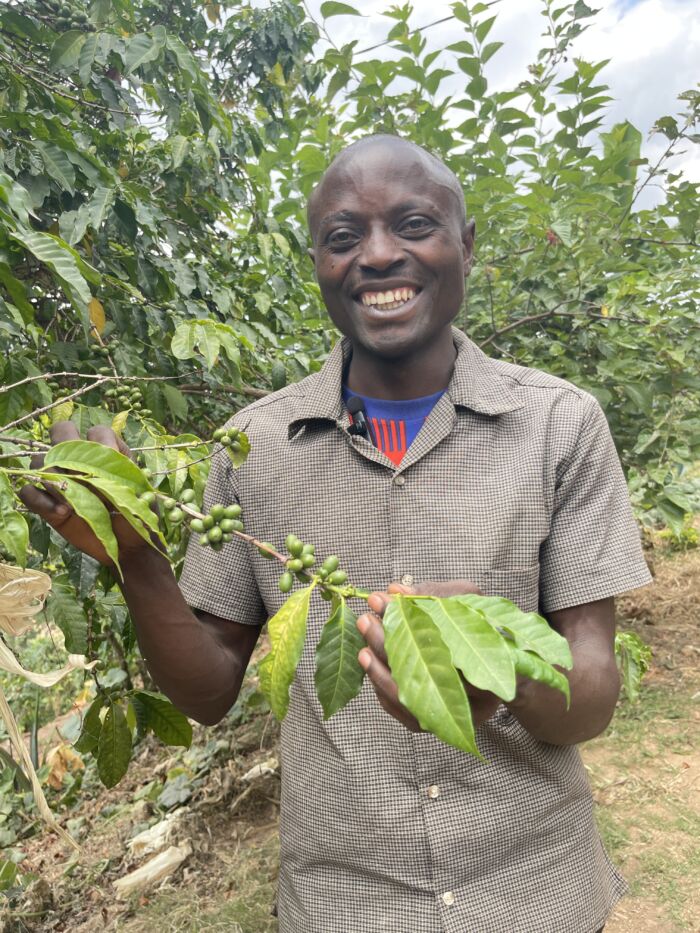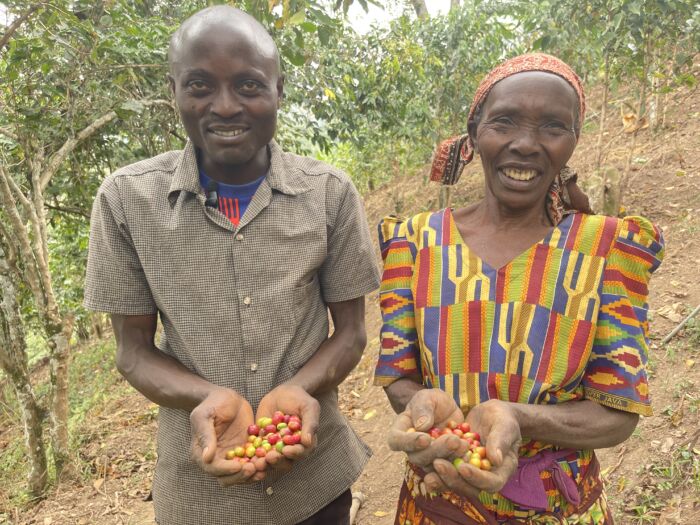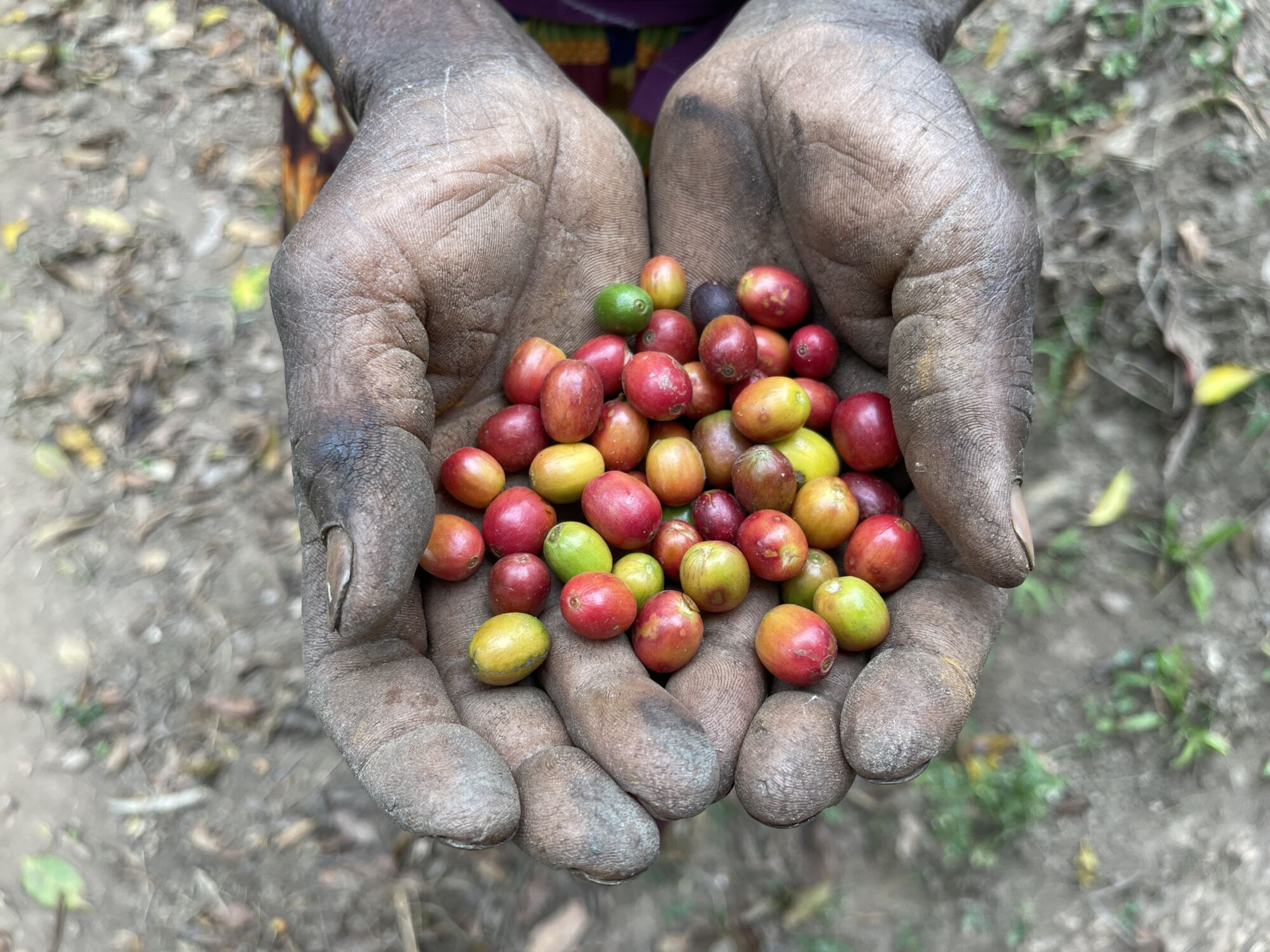
Bagonza Amon, 31 years old, is married with two girls aged eight and four years. The young couple are smallholder farmers in the mountainous region of Mt Rwenzori in Uganda. They primarily grow Arabica coffee and have around 540 coffee bushes. Additionally, they have diversified their farming with other crops, such as beans, cassava, and sweet potatoes, on their one-and-a-half-acre farm.
Following in the footsteps of his parents, he has also involved his mother in the venture; like their parents before, coffee in this region remains a generational crop.
Amon’s main struggle, along with other farmers, has been accessing a stable market for their coffee. “I used to sell my coffee to any buyer who would come to my farm,” says Amon, which often means selling at a price defined by the coffee buyers, which is not always competitive.

However, through the Bean to Cup (BECUP) project, a partnership between We Effect and Long Miles, he is now getting better returns from his coffee. The BECUP project is an inspiring initiative dedicated to promoting smallholder coffee production, quality, and income while advancing gender equality to improve the livelihoods of farmers.
“Long Miles is providing a better price compared to other buyers in the region. They are currently buying one kilogram at 2200 – 2500 Uganda shillings, while other companies buy at 1500 – 1800 Uganda shillings,” he explains. During a good season, he makes around 1.5 million Uganda shillings. He has managed to purchase a piece of land at the market center and is now saving to build a permanent rental house in the near future. He further adds, “I also derive a lot of pride in providing for my family, and the returns enable me to provide a meal for my family,” he narrates with a smile on his face.
The primary objective of the BECUP project is to revolutionize coffee production and productivity, aiming to foster sustainability, enhance coffee quality, and create economic opportunities for smallholder coffee farmers.

“We have received training on how to stamp our coffee, implement mulching terraces, and adopt good agronomical practices to ensure the coffee is of good quality.
However, it’s not all rosy, and our biggest challenge remains to transport our coffee to the dry mills considering the poor road network and the mountainous nature of our region.
We are happy that Long Miles is constructing a dry mill foot down closer to farmers, and this will ease the transport burden.”
The presence of Long Miles Coffee, an international company based in the Mt Rwenzori region, provides crucial technical expertise and facilitates the processing and export of coffee while empowering farmers through training in good agronomic practices. To achieve its vision, the project has forged a direct link between smallholder coffee farmers and a niche market in Sweden. The coffee industry recognizes the urgent need for sustainable coffee production that benefits both the environment and communities.
In collaboration with Lykke Kaffegårdar and Long Miles, the BECUP project is pioneering new technologies and business models that promote profitability and sustainability in coffee production.
